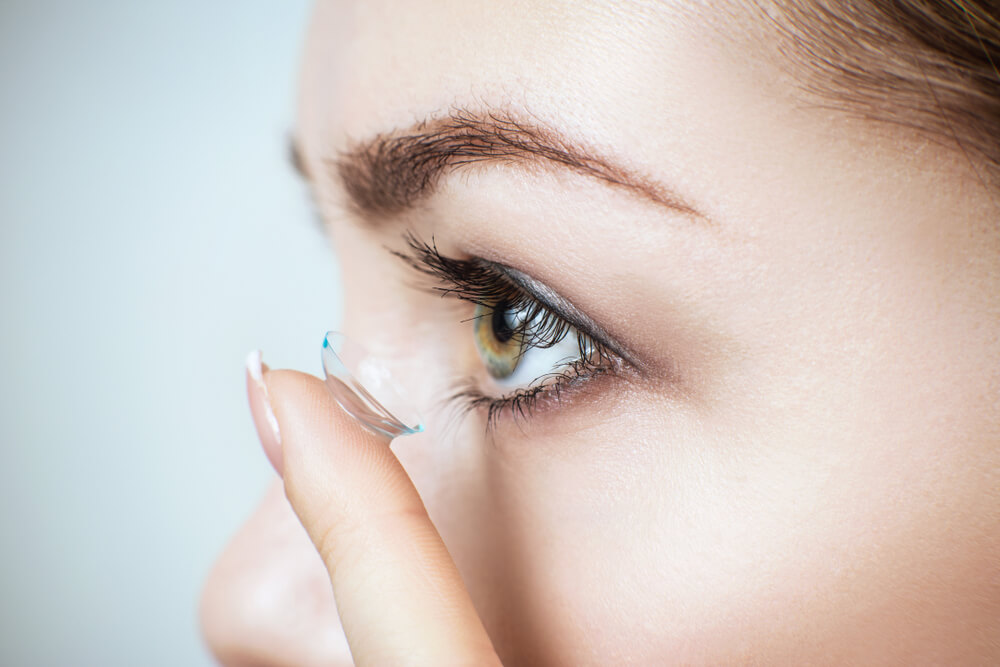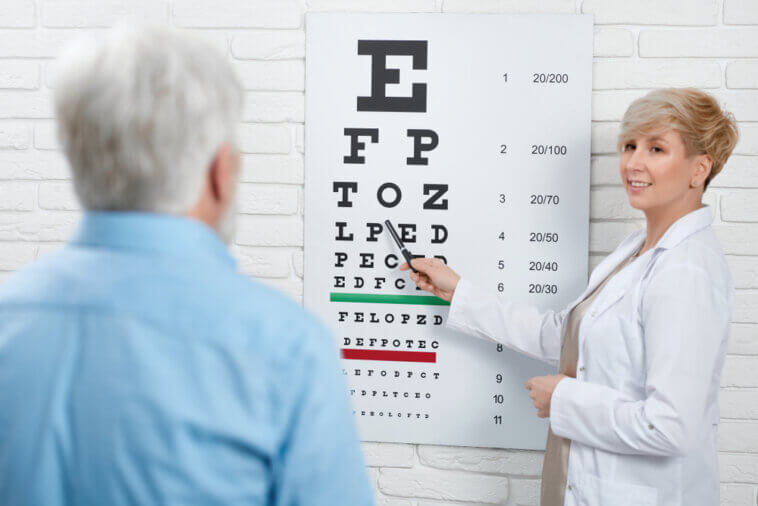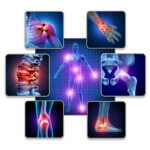Table of Contents
How can you improve your eyesight? There are several simple, yet effective remedies to improve your eyesight. You can use natural methods like exercise, rest, and diet. In fact, vision problems are linked to many other health problems, including diabetes, high blood pressure, lower back pain, stroke, and depression. These health risks are also very real. To reduce your risk factors and improve your eyesight, start with these simple tips.
Natural remedies for improving eyesight

Using Ayurvedic methods of improving eyesight has been a long-standing practice, and a great number of different foods contain the essential nutrients needed for healthy eyesight. For example, eating foods rich in vitamin A and E, as well as amino acids, can help your vision. Other foods rich in these essential nutrients include spinach, corn, beetroot, and blueberries. You can also improve your eyesight naturally by consuming foods rich in omega-3 fatty acids, lutein, zeaxanthin, and eggs. Additionally, you can get the nutrients you need from fatty fish, nuts, and seeds.
Wild asparagus is one of the most beneficial herbs for improving eyesight, as it promotes a healthy, longer-lasting eye. You can drink the extract of a fresh bunch of wild asparagus mixed with honey or cow milk several times a day. This combination can improve your eyesight and can reverse many eye conditions, including cataracts and glaucoma. In addition, asparagus helps to reduce stress and is an excellent way to combat mental and physical stress.
Amla is a powerful Ayurvedic remedy for improving eyesight. Amla is high in vitamin C and other beneficial nutrients. It helps strengthen the retina, promotes healthy capillaries, and improves vision. You can drink amla juice as a supplement or mix it with a half-cup of water and honey to increase your intake. However, you should note that many of these natural remedies may work against each other. So be sure to discuss any new supplements with your doctor before starting a new treatment plan.
Exercise
You may have heard of the 20-20-20 rule – holding a thumb 10 inches from your eyes and focusing on an object around twenty feet away. By doing this, you are stretching your eye muscles and increasing your ability to focus. This exercise also prevents eye fatigue and increases the flexibility of the eye. Try this exercise today to improve your eyesight! Here are three easy ways to improve your eyesight:
Cardiovascular exercise can improve your eyesight in the long term. Cardiovascular exercise reduces intraocular pressure, the pressure inside the eye. Lowering intraocular pressure protects the retinal ganglion cells, which are responsible for collecting visual information. Additionally, cardiovascular exercise improves blood flow to the optic nerve and retina, promoting overall eye health and vision. Exercises that boost circulation are particularly beneficial for people with glaucoma.
Some simple vision-improving exercises include palming. These exercises are designed to train the eye muscles to converge when looking up close. Using a pencil as an example, focus on the top of the pencil with legible letters and move the pen towards your nose while maintaining focus on the letters. Any object with focusable letters can be used for this exercise. Repeat these exercises several times a day for the best results. They are also beneficial for people with focus issues and who suffer from eye strain.
Proper rest

The eyes require rest to work properly. They are busy during the day and only get rest when we sleep. Therefore, we need to get the rest we need to ensure our eyes remain healthy. Here are some tips on how to get more rest. First of all, try to get at least eight hours of sleep every night. Another way to get some sleep is to place a cucumber slice over your eyelids for 10 minutes every 50 minutes.
The eyes need a good night's rest to recharge. During sleep, your eyes replenish natural tears that keep them moist and healthy. People who get seven or more hours of sleep each night are less likely to suffer from dry eye syndrome, which can cause blurred vision and discomfort. In addition, a full night's sleep can reduce your risk of developing eye spasms. By getting adequate rest, you can improve your eyesight while improving the quality of your life.
While you are working, take a 10-minute break to focus on objects farther away. Avoid reading books for too long, as this can strain your eyes. Try applying slices of cucumber over your eyelids to reduce puffiness. Cucumbers also contain folic acid, which helps stimulate antioxidant activity. You may also want to try applying artificial tear solutions. The cucumber slices will refresh your eyes. They can also help clear up any inflammation that has accumulated around your eyelids.
Diet
A diet rich in phytochemicals can help prevent and treat age-related vision problems, as well as degenerative eye diseases. Fruits and vegetables are great sources of these nutrients. Increasing the amount of these foods in your daily diet may also reduce your risk of developing eye problems later on in life. Other important factors in eye health include physical activity, controlling blood pressure, and refraining from smoking. In addition to improving your eyesight by eating a healthy diet, you may want to consider adding some eye-health supplements to your diet. As with any health change, always check with your physician before making any major changes to your diet or taking vitamin supplements.
Orange vegetables and fruits contain many vitamins and minerals that support eye health. These vegetables and fruits may lower your risk of eye diseases such as cataracts and age-related macular degeneration. Aside from oranges, blueberries contain important ocular nutrients and are great for overall health. You should also add these to your morning and evening meals. Besides these, sunflower seeds and acai berries are also excellent sources of bioflavonoids.
Dark leafy vegetables such as spinach and kale contain antioxidants and lutein that are beneficial for the health of the eyes. These vegetables contain 11 milligrams of lutein per 100 grams and can be used in salads, smoothies, wraps, and sandwiches. Other eye-healthy foods include whole grains, eggs, and fish. In addition, a healthy diet rich in zinc and vitamin E will help protect your eyes from inflammation and other conditions.
Corrective lenses

If you have vision problems, an eye doctor will likely prescribe corrective lenses to improve your vision. These are pieces of glass that have been shaped to focus light onto the retina, allowing the brain to process the image. Corrective lenses can improve your eyesight in many ways, and they can help you see faraway objects clearly, as well as improve your vision if you are nearsighted. The main function of these lenses is to correct refractive errors, or vision problems, caused by light bending incorrectly.
According to the World Health Organization, 253 million people worldwide have vision impairments. However, most of these problems are preventable and treatable. Corrective lenses are one of the best ways to improve your eyesight. In fact, even if you have 20/20 vision, corrective lenses can improve your eyesight. You can also wear eyewear to block blue light from electronic devices. Many people suffer from eye strain from staring at a screen for long periods of time.
For example, if you're farsighted, your eyeball is too long. In that case, you'll need to use a thicker lens to focus light on your retina. In addition, if you're nearsighted, you may need to wear glasses that correct your eye's curvature. These glasses will also reduce the distance that light travels through the eye. These lenses are often prescribed by an optometrist and will improve your eyesight over time.
Vitamins and minerals
There are many ways to improve your eyesight, including taking vitamins and mineral supplements. A proper diet is important, as are regular physical activities and limiting time spent behind a computer screen. These steps can also improve your eyesight, but these are not the only ways to protect your eyes. While it's not possible to avoid all forms of stress, you can minimize the negative effects of these habits by consuming the right foods and vitamins.
Your eyes are a complex organ, so it's important that you get the right balance of vitamins and minerals. Vitamins help maintain a clear cornea and are important for the production of the protein rhodopsin, which allows you to see in low-light conditions. If you're not getting enough of these nutrients, you could develop common eye conditions such as night blindness. Vitamin A is essential for maintaining good eye health and vision.
One study found that Vitamin C reduced oxidative stress in the eyes. Eyes break down oxygen faster than other parts of the body, making them more susceptible to damage. Vitamin C helps your eyes produce collagen, a substance that is necessary for good vision. The AREDS study found that a specialized blend of vitamins and minerals was associated with a 25 percent lower risk of developing age-related eye disease.




Comments
Loading…